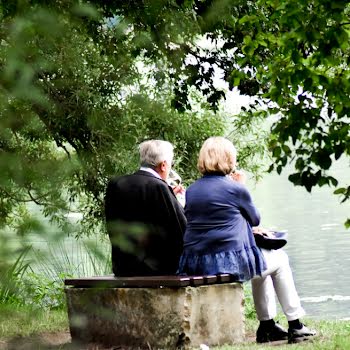To help young people to understand consent, we need to start with teaching them empathy and commit to having multiple conversations with them about the topic.
We need to have a national conversation about consent, boundaries and respect, and how we, as parents, can start teaching that lesson.
Conversations
“It is about creating a long term cultural understanding for a child.”
These lessons cannot be taught in one sit-down – parents need to commit to multiple conversations, according to Coleman Noctor, a child and adolescent psychoanalytical psychotherapist and author.
He strongly believes that children and teens need ongoing guidance to truly understand the concept of consent. “It is a complex issue because it is about creating a long-term cultural understanding for a child. That means it depends on the general attitudes and role-modelling of adults around the child and a multitude of conversations over time (each progressing according to the child’s developmental stage) as opposed to a one-off ‘sit-down chat’.”
Noctor says any understanding needs to be in line with a child’s developmental level. “For younger children, it is obviously more about ‘boundaries’ than it is for sexualised content. For example, smaller children need to know about things like appropriate touch and unwanted touch, private areas etc. rather than just providing instruction for guidelines about consent in response to sexualised advances.”

Wider conversation
But our approach to consent and how we deal with sexual relationships remains in its infancy. Noctor believes that the current conversation around consent needs to be wider than it currently is. “There is clearly a need to educate children about general boundaries and unwanted contact as opposed to merely explicit sexual scenarios.
“I have heard some young people report a ‘groping culture’ that exists in contemporary nightlife, that many seem to accept as almost ‘par for the course’ on a night out. This has serious ramifications for a child’s understanding of intimacy, relationships, self-worth and maturity fears.”
These are the sons raised to believe that a rapist is the bad guy in the bushes. They don’t believe for one second that they could ever be that guy.
Instead, they might believe that maybe they “might have pushed things too far” or that “we were drunk and things got a little out of hand”.
We all know stories like these. Some of us even lived them. None of us were truly ready. If our children are prepared to accept that this type of behaviour is expected, they are beginning their sexual years on the back foot.
The availability and accessibility of porn has also been discussed widely – particularly in the wake of the tragic Ana Kriégel case a few years ago. (One of the boys found guilty of her murder reportedly had 12,000 pornographic images downloaded onto his mobile phone. He was 13 years old).
Porn as a teacher
The Butterfly Effect is a seven-series podcast by writer Jon Robson about how free porn changed the world. It is intelligent, thought-provoking and, ultimately, quite frightening. By the creation of platforms like Pornhub for free porn, it triggered a dramatic effect across the porn industry and beyond. The most challenging episode, in my opinion, focuses on the viewers and how tech has changed their sexual habits.
Young people are now being sexually educated by porn and most of the plotlines are about male dominance, rape fantasy, sexual violence, and the objectification of women.
We now live in a world where we glorify appearance and sexual appeal and undervalue, well… values.
One popular female performer in The Butterfly Effect explains how before, it was older men who do a would double-take when they saw her on the street, recognising her from the adult movies. She points out how she now gets recognised mostly by younger teens and children as young as ten years of age. She said one child “no older than about 13 years” recently marched up to her and demanded sex.
Damaging
Adolescent brains are still forming, their sexual maturity has not yet kicked in, their impulses are much less restrained. To expose young minds to such explicit material is, at worst, hugely damaging and at best, confusing. Porn that includes sexual dominance and violence is the exact opposite message of what we are trying to convey.
Why are we raising generations who still adhere to archaic dating stereotypes where men want to be crowned ‘top shagger’ and women are the disposable prizes vying up to look as porn-star-esque as possible?
Instagram, programmes like Love Island…we now live in a world where we glorify appearance and sexual appeal and undervalue, well… values. Of course, being physically attractive to the other party is key, but when did we do away with holding core value systems in high esteem? Do principals like respect, integrity, boundaries and empathy not matter anymore?
Why are we raising generations who still adhere to archaic dating stereotypes where men want to be crowned ‘top shagger’ and women are the disposable prizes vying to look as porn-star-esque as possible?
Self-respect
Noctor says that focusing on things like self-esteem, empathy and cultivating self-respect with our children is a good start. “Consent conversations with children are gradual, consistent and progressive. They need to occur with both girls and boys and teach a culture of respecting boundaries. They are not a one-off, birds and the bees sit-down conversation. Instead, they need to be reinforced over time and role-modelled in the family home and in observable relationships that the child experiences (parents, older siblings etc.).”
I have heard some young people report a ‘groping culture’ that exists in contemporary nightlife, that many seem to accept as ‘par for the course’
We need to remind our children that ‘no’ means ‘no’. We need to remind them that speaking up and out is responsible and essential. Identifying the feeling of being pressured into a situation and understanding how others are feeling are all part of being in a relationship. But when it comes to romantic or sexual interactions, it can mean the difference between a safe, positive encounter, and one that ends up causing harm.
Image via Unsplash.com























